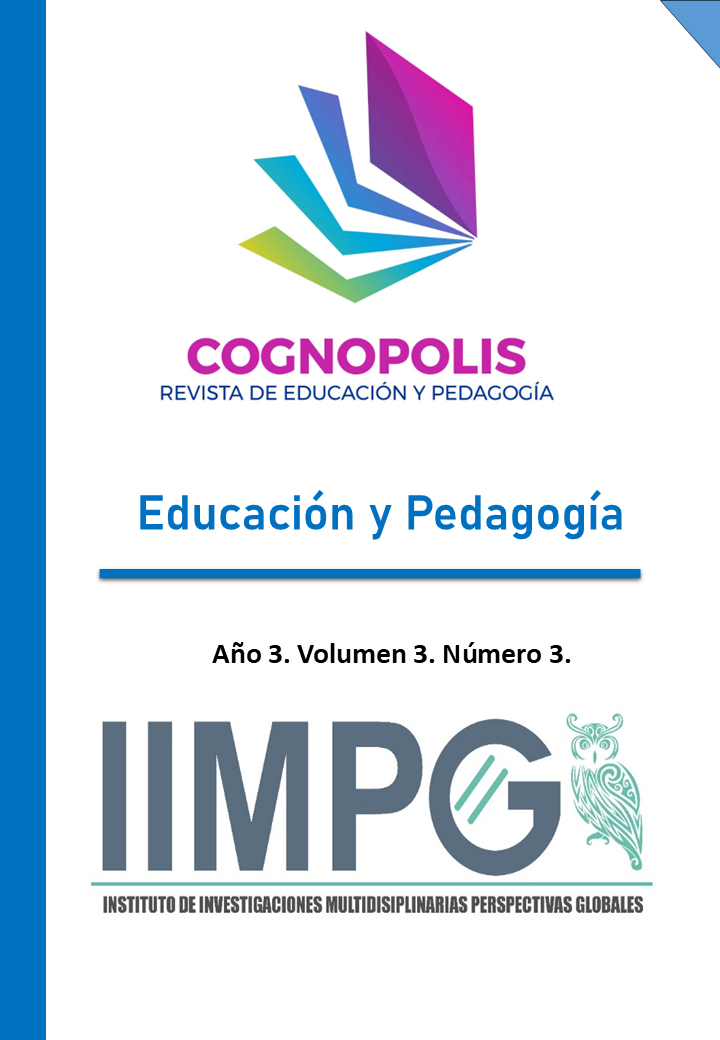Gamification as a cross-cutting strategy to improve student motivation and academic performance [Gamificación como estrategia transversal para mejorar motivación y rendimiento académico estudiantil]
DOI:
https://doi.org/10.62574/v993wg78Keywords:
teaching methods, motivation, teacher trainingAbstract
Educational gamification has emerged as an innovative pedagogical strategy to address contemporary challenges in student motivation and academic performance. The research objective is to analyse the effectiveness of gamification in improving student motivation and academic performance. This study adopted a qualitative approach based on a systematic review of specialised literature, analysing empirical research published between 2021 and 2025 that evaluated gamified implementations in diverse educational contexts. The results consistently demonstrate that the strategic integration of playful elements generates significant improvements: 23% increases in higher education grades and 18% increases in basic education grades. Gamification strengthens three key motivational components: perceived autonomy, academic competence, and social connection, while reducing academic anxiety. Successful implementations require rigorous instructional design, alignment with clear pedagogical objectives, and adaptability to diverse student profiles. Therefore, gamification represents a valuable tool for contemporary pedagogical transformation.
Downloads
References
Cuenca-Córdova, V. del C., & Vivanco-Ureña, C. I. (2025). La gamificación en la evaluación formativa y el rendimiento académico en estudiantes universitarios [Gamification in formative assessment and academic performance in university students]. Ciencia y Educación, 6(9.2), 336–348.
Fiestas-Mejía, G. de los M., & Founes-Mendez, N. F. (2023). Fortalecimiento de la gamificación: Estrategia para mejorar el rendimiento académico en escolares de educación básica [Strengthening gamification: A strategy to improve academic performance in basic education students]. Ciencia Latina Revista Científica Multidisciplinar, 7(1), 5539–5561. https://doi.org/10.37811/cl_rcm.v7i1.4845
Lardín, J. C. P., Hinojo-Lucena, F. J., Romero-Rodríguez, J. M., & Martínez-Domingo, J. A. (2023). Gamificación en el aula a través de Minecraft Education: Una revisión sistemática [Gamification in the classroom through Minecraft Education: A systematic review]. En Desafíos educativos a través de la interdisciplinariedad en la investigación y la innovación (pp. 31–50).
Lima-Quinde, M. A., Solórzano-Ortega, C. V., León-Quiñonez, V. H., & Romero-Amores, N. V. (2025). Impacto de la gamificación en el rendimiento académico de estudiantes de educación superior [Impact of gamification on the academic performance of higher education students]. Revista Social Fronteriza, 5(2), e–697. https://doi.org/10.59814/resofro.2025.5(2)697
Márquez-Ramírez, A. E., & Angulo-Armenta, J. (2024). Estado del arte sobre el uso de la gamificación en las prácticas docentes [State of the art on the use of gamification in teaching practices]. Revista Tecnología, Ciencia y Educación, (29), 83–104. https://doi.org/10.51302/tce.2024.21433
Montaño, S. M., & Enríquez, J. A. V. (2022). Estrategias de enseñanza en educación infantil: Revisión sistemática [Teaching strategies in early childhood education: A systematic review]. Educação Contemporânea, 46, 26.
Morales-Pérez, J., & Reyes-Cardona, A. (2022). La gamificación como técnica didáctica en los procesos de enseñanza y aprendizaje en estudiantes de básica primaria: Una revisión sistemática [Gamification as a didactic technique in teaching and learning processes in primary school students]. Universidad Cooperativa de Colombia, Facultad de Ciencias Sociales, Psicología, Cali. Disponible en: https://hdl.handle.net/20.500.12494/48045
Navarro-Mateos, C., Pérez-López, I. J., & Marzo, P. F. (2021). La gamificación en el ámbito educativo español: Revisión sistemática [Gamification in the Spanish educational field: A systematic review]. Retos, 42, 507–516. https://doi.org/10.47197/retos.v42i0.87384
Pazmiño-Arcos, A. F., Fonseca-Herrera, C. E., Sonia-Del-Pilar, R. M., & Rodríguez-Morales, C. (2024). Estrategias virtuales para desarrollar el pensamiento lógico-matemático en estudiantes: Una revisión rápida [Virtual strategies to develop logical-mathematical thinking in students: A rapid review]. Espergesia, 11(1), e110106. https://doi.org/10.18050/rev.espergesia.v11i1.2895
Prieto-Andreu, J. M., Gómez-Escalonilla-Torrijos, J. D., & Said-Hung, E. (2022). Gamificación, motivación y rendimiento en educación: Una revisión sistemática [Gamification, motivation, and performance in education: A systematic review]. Revista Electrónica Educare, 26(1), 251–273. https://doi.org/10.15359/ree.26-1.14
Ramírez-Benavides, R. L. (2024). Videojuegos en el desarrollo del pensamiento lógico matemático en estudiantes de educación preescolar: Una revisión sistemática [Video games in the development of logical-mathematical thinking in preschool students: A systematic review]. CITAS, 10(1), 109–125. https://doi.org/10.15332/24224529.9673
Downloads
Published
Issue
Section
License
Copyright (c) 2025 José Luis Mendoza-Palma , Piedad Elizabeth Anchundia-Laas, Gloria Marilú Intriago-Vélez, Melina Virginia Demera Moreira (Autor/a)

This work is licensed under a Creative Commons Attribution-NonCommercial-ShareAlike 4.0 International License.
This work is licensed under an international Creative Commons Attribution-NonCommercial-ShareAlike 4.0 licence.
CC BY-NC-SA: This licence allows re-users to distribute, remix, adapt and build upon the material in any medium or format for non-commercial purposes only, and only provided that the creator is attributed. If you remix, adapt or build upon the material, you must license the modified material under identical terms.











